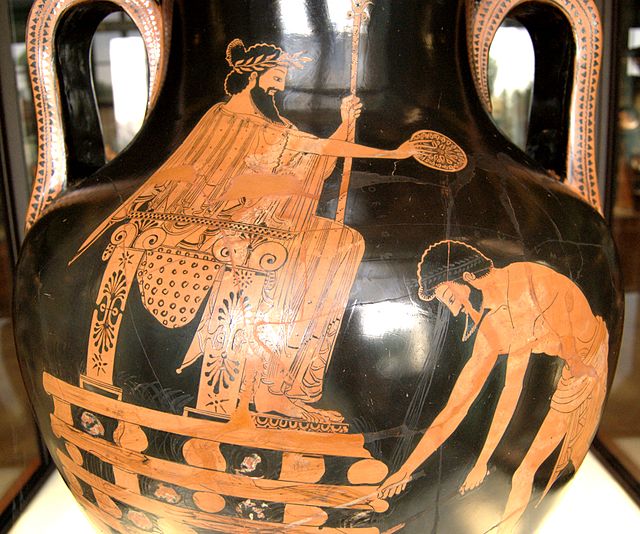Solon was an archaic Athenian statesman, lawmaker, political philosopher, and poet. He is one of the Seven Sages of Greece and credited with laying the foundations for Athenian democracy. Solon's efforts to legislate against political, economic and moral decline resulted in his constitutional reform overturning most of Draco's laws.
Bust of Solon, copy from a Greek original (c. 110 BC) from the Farnese Collection, now at the National Archaeological Museum, Naples
Bust of Solon in Vatican Museums
"Solon demands to pledge respect for his laws", book illustration (Augsburg 1832)
Croesus awaits fiery execution (Attic red-figure amphora, 500–490 BC, Louvre G 197)
Archaic Greece was the period in Greek history lasting from c. 800 BC to the second Persian invasion of Greece in 480 BC, following the Greek Dark Ages and succeeded by the Classical period. In the archaic period, Greeks settled across the Mediterranean Sea and the Black Sea: by the end of the period, they were part of a trade network that spanned the entire Mediterranean.
The gymnasium and palaestra at Olympia, the site of the ancient Olympic games. The archaic period conventionally dates from the first Olympiad.
Ruins of the Temple of Apollo within the polis of Ancient Corinth, built c. 540 BC, with the Acrocorinth (the city's acropolis) seen in the background
The lawgiver Solon reformed the Athenian constitution, which led to significant developments in Greece at the time
The Temple of Concordia, Valle dei Templi, Magna Graecia, in present-day Italy







